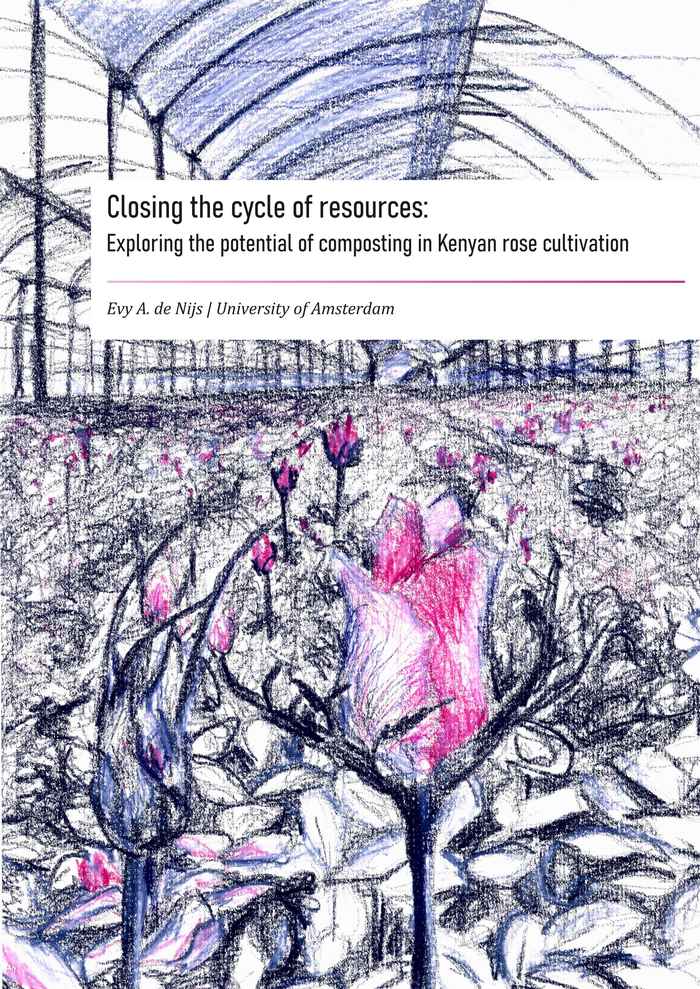PhD defence ceremony by Evy de Nijs
- Date
- 14 February 2025
- Time
- 11:00
- Location
- Aula - Lutherse kerk

Effective waste management and nutrient recycling are essential in horticulture to enhance sustainability and resource efficiency. In Kenya, rose cultivation generates significant underutilized organic waste, up to 50 kg per hectare daily. This thesis explored the potential of composting rose waste as a sustainable waste management strategy, integrating laboratory experiments with commercial-scale field trials. A small-scale study demonstrated that rose waste can be effectively composted despite challenges such as high moisture content, low carbon-to-nitrogen ratios, and high lignin levels. The mature compost met quality standards and suppressed diseases caused by common rose pathogens. This study also revealed key molecular degradation patterns during composting. Scaling up to commercial composting confirmed the feasibility of managing large volumes of rose waste, producing compost with strong fertilizing potential. Composting can close the resource cycle on mid-size rose farms. Field trials showed that compost amendment improved soil quality by enhancing organic matter content, nutrient availability, and structure. When combined with fertigation, compost increased rose yields by 3.2–4.7% over 18 months compared to fertigation alone. A statistical modelling approach analyzed yield dynamics across flowering flushes using repeated Gompertz growth models. This highlighted compost's early-stage benefits and its sustained yield advantages over time. This thesis demonstrates that composting rose waste enhances soil fertility, boosts crop yields, and reduces reliance on mineral fertilizers. Composting is a practical strategy for managing green waste and promoting sustainability in floriculture, mitigating soil exhaustion and supporting sustainable farming practices in Kenya and beyond.
